A Homeowners Guide to MA Roofing Contractor Requirements
Quick Summary for Homeowners
If you're searching for a roofing contractor in Massachusetts, here’s what you need to know:
- Roofing contractors must be registered as Home Improvement Contractors, and in many cases, should also hold a Construction Supervisor License.
- Residential roofs must follow strict state building code requirements for materials, ventilation, and weather protection.
- Contractors must carry general liability and workers’ compensation insurance.
- Choosing a licensed and insured roofer ensures your home is protected and that the work meets professional standards.
At Master Roof, based in Milford, MA, we follow every regulation to deliver work that’s safe, durable, and up to code.
Understanding Roofing Contractor Requirements in Massachusetts
If you're a Massachusetts homeowner looking to hire a roofing contractor, understanding the state's licensing, insurance, and code requirements can help you make a smart, safe choice. At Master Roof, a fully licensed and insured roofing company based in Milford, MA, we believe in transparency and professionalism. This guide will walk you through the key legal and regulatory standards every roofing contractor must meet in Massachusetts.New Paragraph
Roofing Licensing Requirements
In Massachusetts, roofing contractors are required to hold a specific license depending on the scope of work being performed.
- Home Improvement Contractor (HIC) Registration is required for contractors performing home improvement work on existing, owner-occupied, 1-4-family residences including roofing repairs and replacements.
- Construction Supervisor License (CSL) is needed when the job includes structural elements like roof framing or deck replacement.
Homeowners can verify a roofer’s CSL through the
Massachusetts Board of Building Regulations and Standards website and HIC registration via the
Office of Consumer Affairs and Business Regulation site. This ensures the roofer meets state requirements.
Massachusetts Building Code for Roof Installations
The Massachusetts State Building Code (780 CMR) outlines essential requirements for roofing installations. Residential roofs must meet standards for safety, durability, and energy efficiency.
Materials need to meet safety & quality standards
- Your roof needs to use approved materials, like asphalt shingles, metal, or tiles, that meet safety standards.
- Asphalt shingles can’t be layered more than twice on your roof because too many layers add too much weight and could cause your roof to collapse.
- Materials must follow the manufacturer’s instructions for installation to ensure they work properly and last a long time.
Roof must protect againt leaks
- Roofs need a layer of underlayment (a waterproof sheet) beneath the shingles to prevent leaks.
If your roof has a steep slope (4/12 or more), one layer is enough.
For flatter roofs (3/12 or less), two layers are required to keep water out.
- Flashing (metal strips) must be installed around chimneys, walls, and roof edges to stop water from sneaking into your home. The metal needs to be rust-resistant and at least 0.019 inches thick
Roof structure needs to be strong
- The roof’s framework (like beams and rafters) must be strong enough to handle heavy snow, wind, and other weather. Massachusetts gets a lot of snow, so this is super important!
- If you’re replacing a roof, the structure might need extra support if the new materials are heavier than the old ones.
- For older homes with masonry walls, extra bracing might be needed to make the roof earthquake-resistant, especially if you’re replacing more than 25% of the roof.
Roofs need adequate drainage
- Your roof needs a system to let rainwater flow off without pooling. This might include gutters, drains, or scuppers (openings in walls).
- If your roof has areas where water could get trapped, backup drains or scuppers are required to prevent damage.
Roof covering an attic needs good ventilation
- If your roof covers an attic, it needs ventilation to let air flow. This prevents moisture buildup, which can cause mold or rot.
- The code requires specific measurements for vents to keep your attic healthy.
Roof materials need to be fire resistant
- Roofs must use materials that resist fire, especially in areas near other buildings. For example, slate or certain treated wood shingles are considered fire-safe.
- If you’re installing solar panels or other equipment on the roof, they need to meet fire safety standards too.
Roofs should be energy-efficient
- Your roof should help keep your home energy-efficient. For example, insulation in the roof or attic needs to meet certain standards to keep heat in during winter and out during summer.
Insurance and Bonding Requirements
To protect you and your property, your contractor should have:
- General liability insurance to cover potential property damage during the project.
- Workers' compensation insurance if the contractor employs a team.
- Surety bonding is less common in residential work but may still be required in specific cases.
Don’t hesitate to ask your roofer for proof of coverage—it's your right as a homeowner.
Why Choose Master Roof for Your Next Roof Replacement
Master Roof meets all Massachusetts’ legal and professional standards. The also keep up with roofing technology and latest trends. With Master Roof you will get the following:
- Your project will meet all required building codes.
- You’re shielded from liability and poor workmanship.
- Your new roof will be structurally sound and inspection-ready.
At Master Roof, we take these standards seriously. We’re licensed, insured, and experienced, delivering reliable results our clients can trust.



